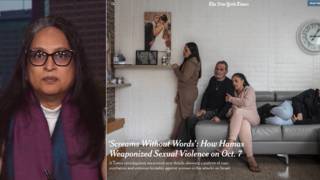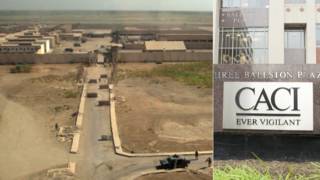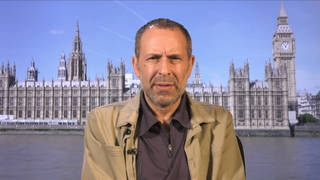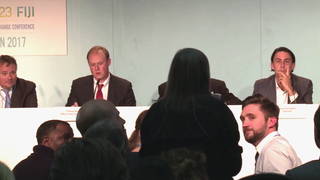
Related
Topics
Energy expert Harvey Wasserman argues the answer is not to improve the country’s antiquated energy grid but to refocus the nation’s attention of alternative energy sources. He writes: “That the grid will crash again and again and yet again is absolutely certain. The only question is who are the real terrorists: errant crazies who blow things up, or entrenched interests that refuse to change?” [Includes transcript]
Click here to read to full transcript
Wasserman wrote a column last week that began:
“This is the fourth—-and worst—-completely unnecessary major regional blackout in this country in forty years, dating back to 1965. It’s scope — from Detroit to Ottawa to New York and New Jersey — is absolutely awesome, especially since it’s due to total stupidity and corruption… The culprits in this latest northeastern disaster are basically the same — the barons of fossil and nuclear power and their cronies in the electric utility business.
“Their “weapon” is an ancient electric grid that’s obsolete if not obscene. It is a massively fragile Rube Goldberg device that dangerously and inefficiently carts around electricity from expensive, polluting and extremely unsafe central generating plants to buildings that waste massive amounts of energy and generate none.
“That the grid will crash again and again and yet again is absolutely certain. The only question is who are the real terrorists: errant crazies who blow things up, or entrenched interests that refuse to change?
“The technology now exists to transcend this mess. In the mid 1990s California’s green energy advocates proposed a 600-megawatt mosaic of solar, wind and other renewable generators that would have entirely prevented the fake deregulatory crisis of 2000-1. It was approved by the California Public Utilities Commission, but then killed by Southern California Edison and the Federal Energy Regulatory Commission.
“Today, the Bush Administration wants to further subsidize its fossil/utility friends with a bad energy bill, and by pouring billions into “upgrading” the electric grid. The only thing certain is that every cent of that money will be wasted.”
- Harvey Wasserman, senior advisor to the Nuclear Information & Resource Service and author of The Last Energy War. He is a senior editor at the Free Press in Ohio.
- * Greg Palast*, investigative reporter with the BBC and author of the books 'The Best Democracy Money can Buy' and 'Democracy and Regulation'
- Jack Casazza, engineer and former utility executive with Public Service Electric and Gas Company (PSE&G) in New Jersey. He is the author of “Sham? Shame! Inside The Electric Power Industry,” a book he wrote in 2001 book in which he predicted a major blackout similar would happen in August 2004. He serves as the president of the American Education Institute in Washington, D.C.
TRANSCRIPT
AMY GOODMAN: And that was the sound of the blackout drummers at Union Square on Thursday night as thousands of people gathered in the dark. Some had candles, others has flashlights, but mainly, musical instruments and their feet, drummers and clarinetists and saxophonists and others, just spending time together, one of the things that happened during the blackout. A lot of community was built all over the region when people were forced away from their computer screens and out of their air conditioned apartments.
You are listening to Democracy Now! I’m Amy Goodman, as we continue our discussion in the aftermath of the biggest blackout in U.S. history. On Friday, on Democracy Now! as we were broadcasting by candlelight, we made one of our first calls to Iraq, where people had experienced this kind of blackout, have been for quite awhile now. We also can’t forget that in Liberia, people have been experiencing this for more than ten years, as well as in many other parts of the world. But now talking about what can be done in this country, on the line with us, Jack Casazza, worked in the industry for 30 years, then left, sickened by the direction he saw the industry going. He’s written the book, it’s actually a fictionalized account, so he wouldn’t be sued, Sham? Shame! Inside the Electric Power Industry. Greg Palast, with us, who long investigated the utility industry. And Harvey Wasserman, author of The Last Energy War: The Battle Over Utility Deregulation. As you listen to this discussion, Harvey Wasserman, also you being based in Ohio, where now investigators are saying that the blackout began with First Energy. Can you comment on the discussion you’ve heard and also focus on the issue of alternative energy.
HARVEY WASSERMAN: Well, it’s no accident that the same people who have the hole in the head nuclear plant near Toledo are the ones who may have caused this. First Energy owns and operates the Ohio legislature. They’re incredible corrupt company. They want to bring back online right now this nuclear plant in port Clinton, Ohio, near Toledo, which is a danger to us all. I mean, thank God it wasn’t the nuclear plant that went instead of the grid. These people really need to be reregulated at very least. We’re seeing the failure, the catastrophic failure, of deregulation here, just as we’ve seen it in California. By the way, very quickly, it’s very apropos that the spokesman for Arnold Schwarzenegger is Pete Wilson, the very man who engineered the catastrophic deregulation of electricity in California. I think they should be , the media should be grilling Pete Wilson, and not trying to get to Arnold Schwarzenegger. But the reality is, that deregulation is a catastrophic failure in electricity and in other areas. And it’s going to leave us completely vulnerable as we go ahead. And what’s missing, of course, among so many other things, but really, for the future, is the role of renewables. These people, these deregulated utilities are extremely hostile to renewables. Since deregulation has come in, the progress towards more self-sufficiency with solar energy and other forms of sustainable electricity has ground to a halt. The reality is that we need renewables in every building in the country, in the world really. Every one of the buildings that blacked out in this last situation could have had photovoltaic cells , which translate sunlight directly into electricity on the rooftops. We could have been using geothermal energy, to draw heat and cooling from the sun, biomass conversion in every building with a generator. All hospitals or most hospitals have cogeneration in their basement, where they use natural gas to generate heating and cooling and electricity so that they don’t go down in blackouts. This is not exactly rocket science. We’ve had photovoltaic cells since 1957 when they went up in the first satellites. The reality is that these breakthroughs are being suppressed. In California last year, the city of San Francisco passed a bond issue and used some of that money to put photovoltaic cells on the roof of the Moscone Center in downtown San Francisco. So, if this blackout had occurred in the Bay Area instead of the east, the lights would have stayed on in the Moscone Center, just as they should have stayed on in thousands and thousands of buildings throughout the northeast. And the main reason that we don’t have these breakthroughs, are the technology is there, but the deregulated utility companies do not want these photovoltaic cells and other breakthroughs on the buildings because it cuts into their business and allows people to turn their own buildings into energy generators, which is what we have to have. The grid is an outdated obsolete concept. It’s very 20th century. This is a rickety old Rube Goldberg device. No matter how good it is, it’s never going to be good enough. Every cent that goes into the grid is a wasted piece of money that should go to make every building its own generator. And that’s the future.
AMY GOODMAN: Greg Palast, where does oil fit into this and why isn’t the Bush administration— how are they dealing with the issue of alternative energy?
GREG PALAST: Well, two things. To some extent, oil has nothing to do with it. But I hear the Bush administration is already beating the drums. If we don’t kill a bunch of caribou and start drilling in the Arctic, if we’d only been drilling in the Arctic, we would’ve had the lights on. Even some of the democrats, like our chubby democratic governor of New Mexico, Mr. Richardson, who was Clinton’s energy secretary said, Oh, this proves that we need to drill more. It’s absolutely amazing. Oil, the lack of oil or, actually the surfeit of oil that we have right now, has nothing to do with the system being blacked out. This is the disease—which is—of deregulation. So the problem here is not the lack of oil, it’s the excess of greed. We deregulated, you have to understand, we deregulated four things. The price, we deregulated the accounting systems, we deregulated the service conditions and finally, we deregulated political giving. Now, the other problem is we used to require, we used to require utilities to put aside so much of their money for alternative energy, and it was a growing sum of money. And this goes way beyond saving oil so we’re not dependent on oil imports or destroying our economy, or destroying our environment for drilling. It also gave us a second method of providing electricity so we wouldn’t be dependent on Met Ed and the other stooges of the electricity industry. So alternative energy is not just saving oil,. We’re now learning and Harvey Wasserman hit it dead on, it is one way to keep the lights on. That ain’t going to happen under a deregulated system, because there’s no way for the big power companies like First Energy to cash in on your photovoltaic cell, on your solar hot water heater. We’re not talking about replacing the system and ripping out the wires. We’re talking about an alternative, which is a matter of safety and reliability, and these companies, these big new giants, which have been created out of deregulation. This massive new set of monopolies, which have been created out of deregulation, they can’t figure out how to make any money off energy, so they’re killing it in the cradle.
AMY GOODMAN: Well, I want to thank you all very much for being with us. This is only the beginning of this discussion. Greg Palast, author of The Best Democracy Money Can Buy. Also I want to thank Harvey Wasserman, author of The Last Energy War: the Battle Over Utility Deregulation, speaking to us from Ohio. And Jack Casazza, Sham? Shame! Inside the Electric Power Industry. Jack, I know you wanted to make one last comment.
JACK CASAZZA: Yes. I did very much so. I think we lack in this country what is called the national power survey. One was ordered by president Johnson after the 1965 blackout, and so on, which takes a look at what are our options for providing our generation capacity, our power capacity in the future, and then, based on these various options, different scenarios—you can argue for photovoltaic, you can argue for nuclear— what kind of a transmission grid do we need? We need to determine what we need before we take all of these steps to implement something that could be drastically wrong. That is the major problem I have with U.S. government policy. We move forward with doing things without knowing what’s right. I think the national power survey is vitally needed, Amy. And I think that there’s , while I disagree about much of what has been said, I don’t think anyone would disagree with making that kind of analysis of the future. 10 to 20 years, where will our power sources be, what kind of power sources, what will the energy supply be and determining what kind of transmission system we have. One speaker, Harvey said we don’t need one. Somebody else says we’re gonna need a super highway. So, let’s analyze and find out, not assume. Thank you, Amy.
AMY GOODMAN: Jack Casazza, “Sham? Shame! Inside the Electric Power Industry.” Finally, Harvey Wasserman, one last question. We started off with Dennis Kucinich. He didn’t talk as much about his early history with the utility industry. But, in fact, it’s what really brought him a national name, and originally took him down as mayor of Cleveland. It was the power of the utilities. You’re from Ohio as well and certainly have followed this history.
HARVEY WASSERMAN: Well, First Energy is the inheritor of Cleveland Electric Illuminating, which beat up Dennis and blackmailed the city of Cleveland to take away the municipal light system. We have a municipal light system in the city of Cleveland that dates back to 1914. It works great, it’s clean, it’s much more accessible to the public, and it offers rates that are cheaper. Publicly owned power, in the hundred years of the utility business , has always been cheaper, always been cleaner, always been more reliable, and this blackout was caused by a utility company that irresponsibly operates two nuclear plants and that is a threat to the safety of the public. And they’re trying right now to open up a nuclear plant that was knocked out because boric acid ate a six-inch hole through the reactor pressure vessel. And now that we’ve seen how they can perform, by knocking out a grid and blacking out 50 million people, we have to pray and organize that they’re not allowed to reopen the Davis Bessie Nuclear Plant near Toledo. That decision is coming up soon. And let’s hope that this is a sign to the public to get the backbone, to keep this nuclear plant from opening up, and instead, getting us towards renewables, towards solar, towards photovoltaic cells, wind power and all the other things that are the 21st century road to electric self-sufficiency.
AMY GOODMAN: I guess the question is, those who are promoting alternative energy, what strategy will they use right now to get it out into the public eye. Certainly, there is an opening right now. Public interest and attention is at an all time high.
HARVEY WASSERMAN: We have to make it clear that renewable energy would have made this blackout never happen.
AMY GOODMAN: Well, on that note, Harvey Wasserman, I want to thank you for being with us. That does it for the show. If you want video or audio copy you can call 1-800-881-2359. Our website is www.democracynow.org. If you missed Friday’s show because of the blackout, wherever you were, you can watch it online and also sign up for our daily digest.











Media Options